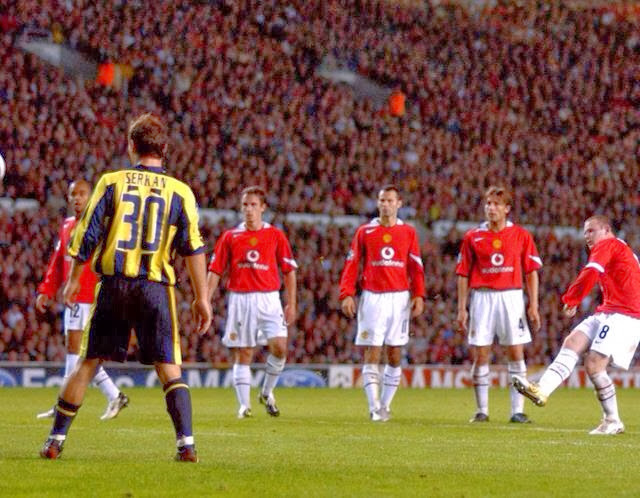So, another famous person has died in tragic circumstances. This time, it's Robin Williams.
Like so many news stories, these days, I found out about Williams' death on Twitter. It's odd, but there's something about that medium that makes bad news even more bleak than it already is. Perhaps it's the unavoidable pithiness of it. After all, it's difficult to fit a lot of detail into one hundred and forty characters. Or perhaps it's because you're happily reading tweet after tweet about football's latest transfer sagas or hilarious gifs only to be knocked for six by the unexpected and shocking.
Back in the days before social media, we had familiar news-readers to soften the blow. We could tell when the information they were about to impart was going to be particularly harrowing by the sincerity and sadness of their facial expressions. They delivered such stories gently, sharing our grief, understanding our pain, their measured, sensitive words akin to a stroke of our hair or a heartfelt cuddle.
Not so with Twitter. There it is, sandwiched between a picture of a cat and a handbag that bears a striking similarity to Phil Jones' gurning face. There's no warning, no change in font to give you time to prepare yourself for what's to come. It's just there. In black and white. Stark and remorseless.
The news that Robin Williams had died, at the age of just sixty-three, sent a chill through my heart. It is always a shock when someone famous, who has been famous throughout your lifetime, dies. What was the far bigger shock, though, was the revelation that the Hollywood star had taken his own life due to a long battle with depression. I hadn't even been aware that he was depressed.
The reaction to this kind of news is all too predictable. How can a man with so much to live for, so much to be happy about, take his own life? How can he be depressed with all that fame and fortune? How can he choose to leave behind all the people that love him? How can he be so selfish?
Yet it is fair to assume that Robin Williams, just like all the millions of other people who take their own lives every year, far from seeing his own suicide as selfish, probably felt he was doing the world, including those that loved him most, a favour.
Such is the mind-crippling power of this terrible affliction. It seeps into every sinew of your being, warping your thought-processes to such a degree that you become incapable of believing that anyone could possibly love you or that anyone would miss you if you were gone. Indeed, you feel that you have become such a burden on the rest of the world, particularly your loved ones, that your own death can seem like the only possible escape from the darkness that has surrounded you.
Winston Churchill, another sufferer of depression, referred to it as his 'Black Dog,' a description that resonates with many. The image of a black dog, stalking the sufferer from the shadows, is a powerful one. It is always there, even during periods of relative happiness, forever threatening to overpower you once again.
Depression does not care about people's background, nor their bank-balance. It can strike anybody at any time, often for no apparent reason, and is surrounded by so much stigma and misunderstanding that the victim often suffers in wretched silence. Then, when the courage to confide in someone you trust is finally plucked up, their reaction, born out of fear and misunderstanding, more often than malice or malevolence, can be overwhelmingly disheartening. They fidget uncomfortably in their seat, unsure of where to look or what to say. It's not their fault, of course. They cannot be expected to understand or comprehend the black hole of despondency that has consumed you.
Robin Williams' suicide is a grim reminder that depression can sink its claws into anyone, regardless of the life they lead or the life we who look in from the outside believe they should lead. Happiness can be sucked from any soul and trampled under the unforgiving feet of their own Black Dog. There will be little for those who loved Williams, be they those closest to him or the many millions who loved him from afar for the joy he brought to their lives over so many years, to take comfort in in light of such sad news.
It is to be hoped, however, as it is when any high-profile figure is revealed to be living anything but the fairytale we often assume they should be, that his death will not be in vain; that the mere fact we are all talking about it, whether from a position of ignorance or understanding, will be another step towards an acceptance that depression is a deeply debilitating illness, as well as being a remorseless and cold-blooded killer that will prey on anyone.












